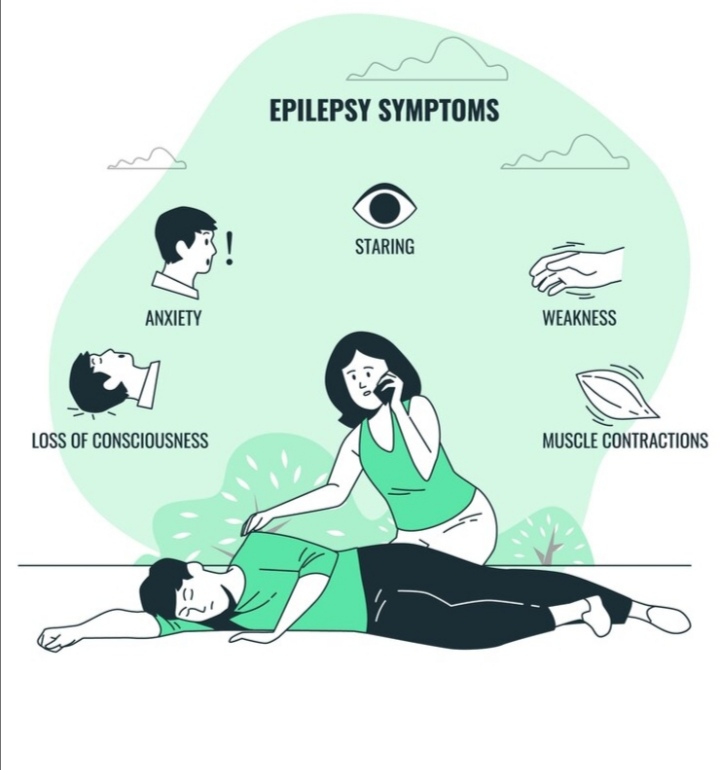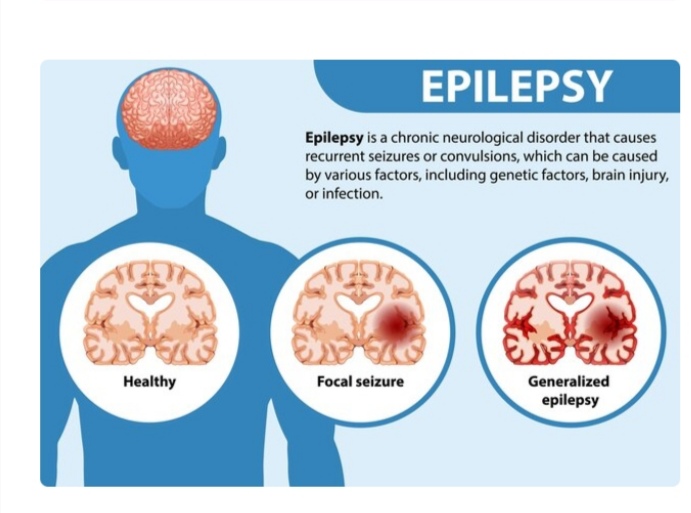Disorder of Nervous systems | Paralysis | Epilepsy | Food to uesd and Food to avoid |
Diseases of the nervous system can be divided into two categories: vascular diseases such as stroke and functional diseases such as epilepsy. Vascular diseases are caused by a disorder of the blood supply to the nervous system, while functional diseases are caused by a disorder in the formation and transmission of nerve impulses.
Paralysis:
Loss of function of one or more muscle groups is called paralysis. A stroke is often caused by damage to the central nervous system (brain or spinal cord). There can be many causes of this loss, such as a stroke (rupture of a blood vessel in the brain or spinal cord), a blood clot in these vessels, or a poison produced by the polio virus.
The patient may have mild paralysis of the whole body or paralysis of one side of the body. lower body or simultaneously
Paralysis can also occur in both hands and arms.

Symptoms of Paralysis :

Epilepsy:
Epilepsy is a disease in which excessive and abnormal nerve impulses occur in the brain. This causes the patient to have sudden seizures without any provocation.
An epileptic seizure refers to a temporary and abnormal condition of the brain in which the patient has convulsions. (seizures) that can cause epilepsy in these people during development. Brain tumors are the leading cause of epilepsy in people over the age of 40. Epilepsy can occur at any age as a result of head injury and central nervous system infection.

There is no complete cure for epilepsy, but medications can control seizures. Epilepsy patients must take medication daily to treat and prevent seizures. Such drugs are called anticonvulsants or antiepileptics.
Medicines are called
During an epileptic seizure, nothing should be put into the patient's mouth as this could cause serious injury. The patient may bite his own tongue.
Foods to be Used :
1.Fish:
Fish, especially fatty fish such as salmon, mackerel and sardines, are rich in omega-3 fatty acids,which are very beneficial for mental health.
2.Nuts and seeds:
Almonds, walnuts, chia seeds and flax seeds contain omega-3s and antioxidants that benefit the nervous system.
3.Green Leafy Vegetables:
Green leafy vegetables like spinach, banana and broccoli are rich in vitamin B, folic acid and antioxidants that strengthen the nervous system.
4.Berries:
Blueberries, strawberries and blackberries are rich in antioxidants and vitamins that benefit brain health.
5.Whole Grains:
Whole grains like oats, brown rice and quinoa are rich in fiber and B vitamins. Strengthens the nervous system.
7.Dark Chocolate:
Dark chocolate contains flavonoids and caffeine that improve brain health.
8.Green Tea:
Green tea contains L-theanine, which improves brain function and reduces nervous tension. Including these foods in your daily diet can improve the health of the nervous system. However, any new food.
Foods to be avoid:
Patients with a nervous system should avoid certain foods to prevent their problems from getting worse. The following doses may be harmful to the nervous system.
1.Coffee and caffeinated beverages: Caffeine can overstimulate the nervous system, which can increase anxiety and sleep problems.
2.Sugar and sweetened beverages:
Excess sugar can have negative effects on the nervous system and cause fluctuations in energy levels.
3.Processed Foods:
Artificial additives, preservatives and colorings can affect the nervous system.
4.Alcohol:
Alcohol depresses the nervous system and excess can lead to psychological and neurological problems.
5.High Salt Diet:
High salt can increase blood pressure, which can affect the nervous system.
Avoiding these foods and eating a balanced and healthy diet can improve the health of the nervous system.
Recommended Blogs


Mansab Ali


Mansab Ali


Mansab Ali



